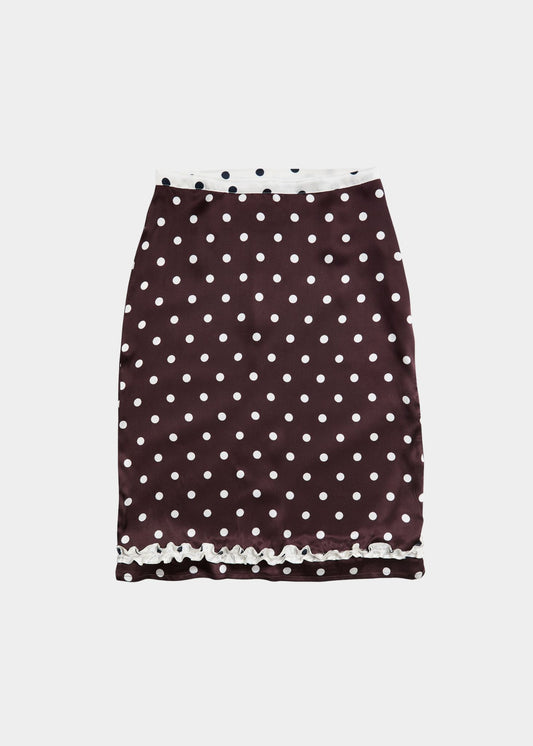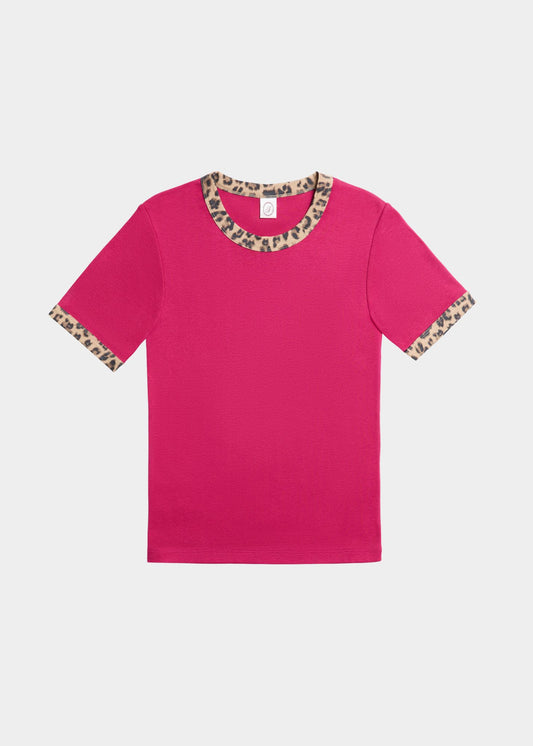FSC

Forests produce more than just the archetypal forest materials: wood and paper. FSC certification can apply to textiles, bamboo, rubber, cork, rattan and more.
The FSC (Forest Stewardship Council) certification checks that forest owners treat the forests with respect. When you buy FSC-certified products, you are helping to place a high value on the forest's environment. You take care to protect endangered species and exposed areas - and at the same time you ensure a minimal footprint in nature. The FSC certification focuses on environmental friendliness and social responsibility.
Manmade cellulosic fibers made with forest based cellulose can be FSC certified. These include viscose, lyocell, modal and cellulose acetate. Most manmade cellulosic fibres (MMCFs) take the form of viscose, also known as rayon. Wood or bamboo cellulose must be chemically treated to produce viscose. Some producers have developed more eco-friendly processes which use less chemicals and water during production. A life cycle analysis of MMCFs concluded that due to the wide variability in impacts associated with sourcing, “it is critical to understand not just the type of material […], but also the source of material”.
Mixing materials FSC-certified products that contain neutral materials (e.g. cotton fibre, synthetic rubber) that cannot be distinguished from FSC-certified ingredients, and may be misinterpreted as being FSC certified, can only be claimed and labelled as FSC Mix (the other FSC labels are FSC 100% and FSC Recycled). This does not apply to inorganic materials that have a different function in the product in relation to the certified ingredient (e.g. glass, plastic, metal) or to products where the FSC-certified ingredient is distinguishable from other ingredients.
FSC chain of custody certification ensures that FSC-certified materials and products have been checked at every stage of processing, so customers purchasing products sold with FSC claims can be confident that they are genuinely FSC certified.
The textiles industry is rapidly adopting renewable materials for products such as clothing. Man-made cellulosic fibres (MMCFs) are derived from wood and represent one of the fastest growing fibres in the last decade. These fibres include viscose, modal, and lyocell.
The FSC label identifies responsibly sourced forest products, and can be applied to fabrics, clothing, footwear, packaging and tags made from FSC-certified materials.
When products are FSC certified it’s a guarantee that they come from well-managed forests, and alongside with large-scale conservation, they help maintain endangered and ancient forests. FSC is the only forest certification system that requires the protection of important nature conservation values, so buying these products that include FSC certified tree-fibers is a good thing for the protection of the world’s forests.
Tree-fibers from FSC certified forests are made from sustainable and renewable resources. For example, TENCEL® and MONOCEL® are often made of FSC certified eucalyptus and bamboo respectively.
TENCEL ™ Lyocell fibers are known for the soft and comfortable quality and for performing at good performance and versatility. The material can be combined with a wide range of textile fibers such as cotton, polyester, acrylic, wool and silk to improve the fabric's aesthetics and functionality. The unique properties of TENCEL ™ Lyocell fibers are also a good durability, effective moisture absorption and the soft feeling against the skin.
TENCEL ™ Lyocell fibers have the good reputation of being environmentally responsible with production processes that convert wood pulp into cellulose fibers with high resource efficiency. The centrifugation process recycles processed water and recycles solvents with a recovery rate of more than 99%. In addition to being incredibly environmentally friendly, this manufacturing process also has a major economic benefit and received the European Award for the Environment from the European Commission in the category "The Technology Award for Sustainable Development" (2000).
TENCEL ™ is a trademark of Lenzing AG.
Also for packaging and labelling materials forest fibres are a good choice. Paper-based packaging can protect goods, provide product information and be both biodegradable and easily recyclable. Paper and cardboard packaging ranks highest with consumers for sustainability attributes including: home compostable (72%), better for the environment (62%) and easier to recycle (57%).1
Fashion is important in today’s world, and people no longer have to compromise their values in order to look good. We hope that with enough demand from consumers, FSC certified tree-fiber fabrics will soon be everywhere – from the catwalks of Milan to the streets of Tokyo,’ enthused Mr. Carstensen.
Find out more about FSC: https://fsc.org/en
Shop slow fashion news
-
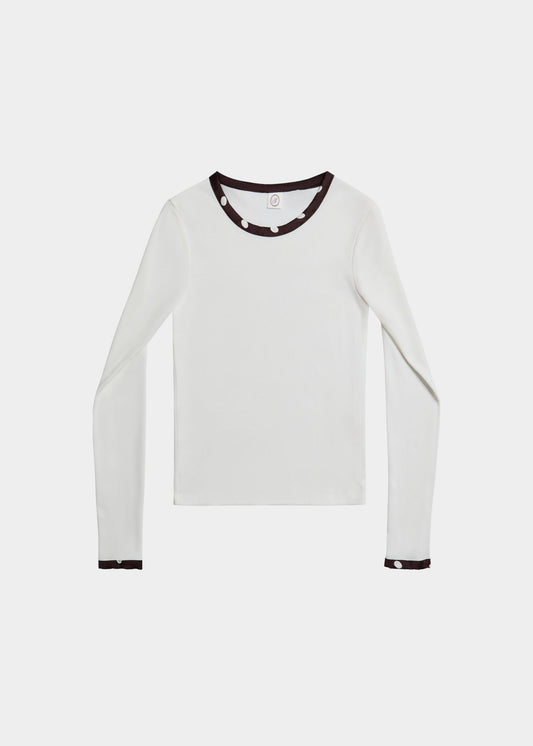 Sold out
Sold outSIGNE Noel Longsleeve Off-white
Regular price €91,95 EURRegular priceUnit price / per -
SIGNE Anais skirt Polka dot
Regular price €275,95 EURRegular priceUnit price / per -
SIGNE June Leo T-shirt Tulip
Regular price €65,95 EURRegular priceUnit price / per -
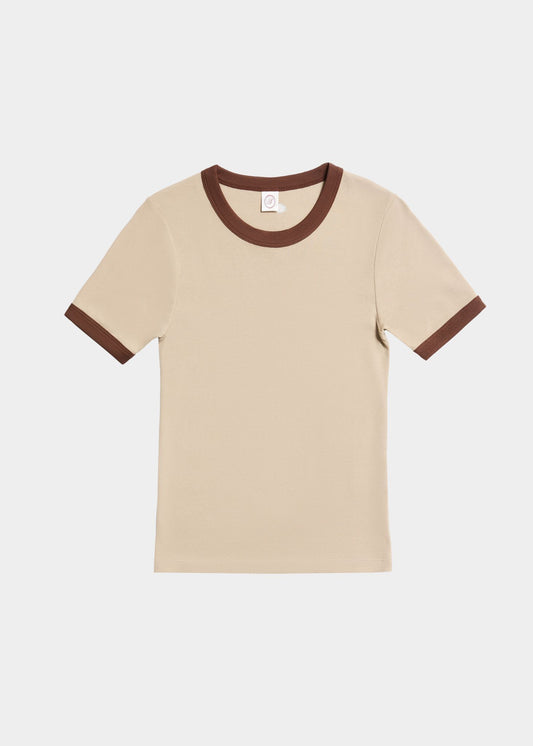 Sold out
Sold outSIGNE June T-shirt Taupe
Regular price €65,95 EURRegular priceUnit price / per
-
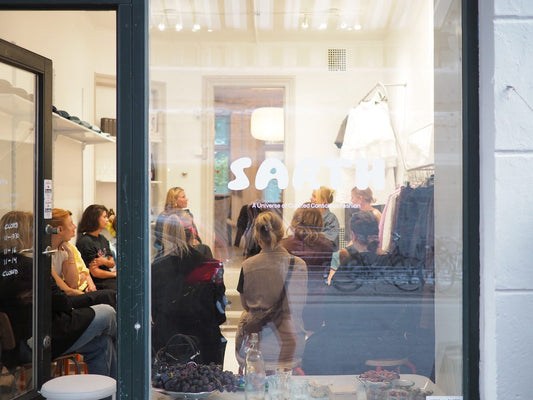
Conscious Closet with co-host Lea Rohe
Thursday September 4th, we opened the doors to something new at SARTH: Conscious Closet. A community event series designed to rethink the way we connect with our wardrobes — and each...
Conscious Closet with co-host Lea Rohe
Thursday September 4th, we opened the doors to something new at SARTH: Conscious Closet. A community event series designed to rethink the way we connect with our wardrobes — and each...
-

SARTH MEETS: Johan Fuglsang
SARTH MEETS is a series of conversations with voices we admire — diving into how they shop, what guides their choices, and how they define their personal style. We ask...
SARTH MEETS: Johan Fuglsang
SARTH MEETS is a series of conversations with voices we admire — diving into how they shop, what guides their choices, and how they define their personal style. We ask...
-

GET TO KNOW: MONO MATERIALS
Why using one fiber at a time might be one of fashion’s smartest steps forward. As fashion continues to grapple with its environmental footprint, one key solution is gaining traction:...
GET TO KNOW: MONO MATERIALS
Why using one fiber at a time might be one of fashion’s smartest steps forward. As fashion continues to grapple with its environmental footprint, one key solution is gaining traction:...
SUBSCRIBE TO CONSCIOUS FASHION
Sign up to our newsletter for inspiration, BTS, exclusive offers and more.We won’t spam you, we promise to inspire <3



